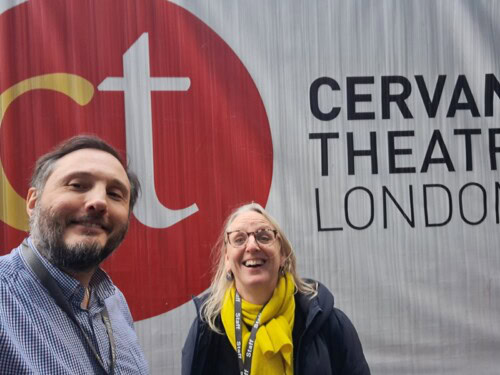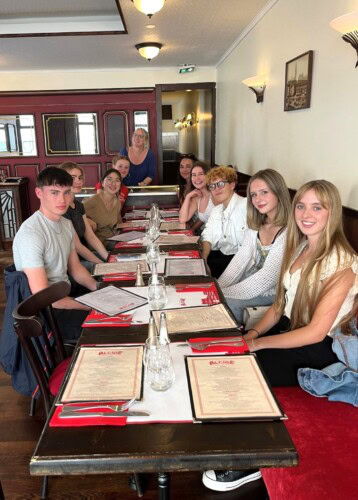Meet the Head of Modern Foreign Languages
Catherine Wilks, Head of Modern Languages at Esher, believes that learning a language is a superpower. “Our brains grow as we learn a real-life skill that employers both need and value,” she explains, championing the cognitive and professional benefits of multilingualism.
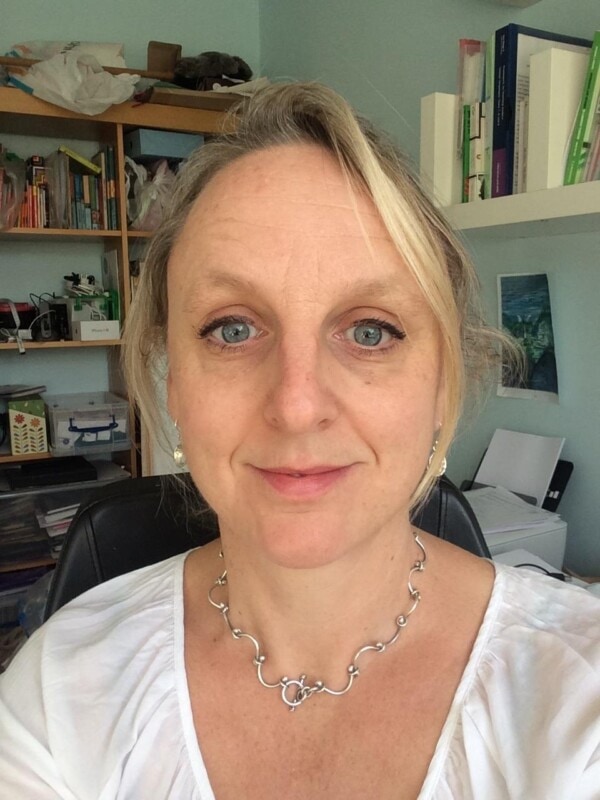
Catherine’s journey into teaching began in France, where she taught English during her degree year abroad and later while researching her MPhil. From the traditional Lycée Classique to the science faculty at the Université de Bourgogne—where all undergraduates were required to study English—Catherine found joy in helping students progress, even when English wasn’t their favourite subject. Returning to the UK to complete a PGCE felt like a natural next step—especially with teaching already running in the family.
Why would you recommend learning a language at A Level?
It has been described as a superpower, or even as the ketchup of subjects: it makes everything taste better!? I’m not sure that’s the sauce I would choose myself, maybe good butter is more in keeping with French Gastronomic tradition- but I like the idea.
We grow our brains when we learn a language, as well as providing a real-life skill which employers need and are impressed by. It gives us human skills, subtle understanding of other cultures, and a whole host of study skills as well. You need logic and memory, as well as the ability to think on your feet. Competitive professions and courses, such as Law and International Relations, like to see a language A level in the mix, as do many employers whose business has an international dimension. It sets you apart from the crowd!
Let’s not forget that whenever we learn a language, we get better at language learning- so MFL A Level students often go on to work in a language they would not have dreamed of learning at school. The process is there, and they know what to do faced with new vocabulary and grammar, as well as another different culture. New jobs, new friends, new ideas: languages are the bridge to all of these.
Why have you chosen to work in a sixth form college?
I always wanted to work in a Sixth Form College! I have worked with every age range, from Year 1 to PGCE, including undergraduate, secondary, and a primary school French Club.
For me the two years where students are moving from the slightly mechanistic GCSE to the more sophisticated requirements of A level are particularly exciting in a foreign language, as students move from discussing quite everyday things to the ability to express complex thoughts and ideas, based on researching real-world problems.
What professional achievement are you most proud of?
I’m so proud every year of getting our students through their exams. The speaking exam in particular can be nerve-wracking, and it makes me so proud to see students who began the course quiet and shy speaking confidently (give or take a few natural nerves).
Our trips to Lille always blow me away, when I see students using their French to deal with day-to-day experiences and communication. This is what learning a language gives them the ability to do!
When you were younger, what teacher inspired you the most? How did they?
My French teacher used to bill us 1/2p for each missed accent. I don’t think she ever collected the fines, but it helped us remember to pay attention to detail!
What book or film has inspired you the most?
I love French poetry, and I did my research on a slightly (very) obscure poet called Jules Supervielle. I loved the way he described his universe, both interior and exterior. Studying a poem in a foreign language is wonderful- you are forced to pay such close attention to all the meanings and connotations of each word, so the experience is painstaking but rich.
What words of wisdom would you give your 16-year-old self?
Learn your irregular verbs! And don’t miss off any accents- that gets expensive.
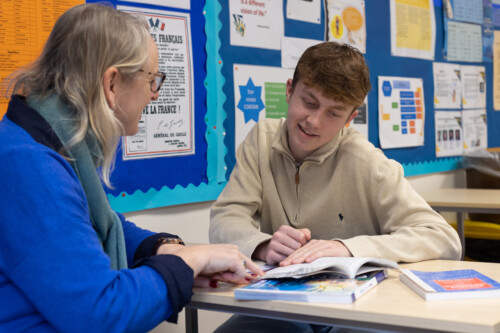

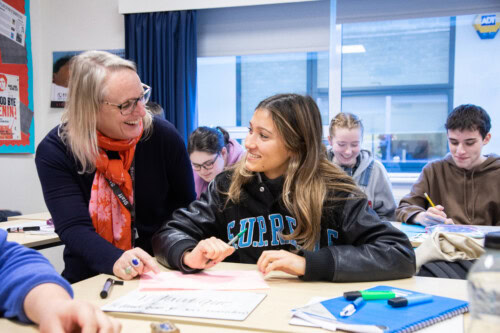
Competitive professions and courses, such as Law and International Relations, like to see a language A Level in the mix.
– Catherine Wilks
